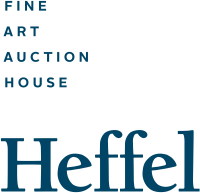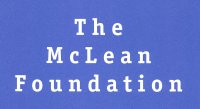Carnegie Hall presents: Keeping the Doors Open
I met him once only. It was on 17 November 1974, at The Met. The occasion was Horowitz’ first recital in six years, and everyone was there. During intermission I spotted Isaac Stern and went to speak with him.
He greeted me like an old but forgotten friend, asked what I was doing “these days”, and offered his hand. I was startled by its strength, thick muscularity, and power in reserve. I congratulated him on his recording with Bernstein of the Barber Violin Concerto. He appeared surprised it was remembered, and moved on to another admirer.
Isaac Stern (1920-2001) was not one of the super-technicians. In his day Heifetz reigned over Olympus, with Milstein on its nearest approaches. David Oistrakh at his best could surpass all of them. But this is irrelevant. Stern was different.
He was born in Ukraine, brought to San Francisco as an infant, studied at the San Francisco Conservatory and with Persinger and Blinder, and at age 15 made his debut with the great Pierre Monteux and the San Francisco Symphony. He never looked back from those earliest triumphs, but later in life became pater familias in music across America. Without Isaac Stern it is almost certain that Carnegie Hall would have been destroyed. He toured China very early in its opening to the West. He was much responsible for launching the careers of Perlman, Zukerman, and Yo Yo Ma. In between all this he gave concerts, recitals and made recordings.
One of his warmest and most embracing, with his initials on every page, has just been re-released by Carnegie Hall and Sony. It is worth our attention.
In July 1967, after Israel’s victory in the Six Day War, he played in Jerusalem and Tel Aviv with the Israel Philharmonic Orchestra led by Leonard Bernstein. On this new recording, taken live and edited from both concerts, he gives the Mendelssohn Violin Concerto in E Minor, Op 64. In it we hear why Stern was not just important but, in fact, essential to his time.
He had a wonderfully commanding right arm. In both the first and third movements we hear the smooth recurring up-bows, the weighty displacements, the imperceptible thousand adjustments to weight and speed and angle that so informed his playing. His sound bloomed in a way that was all his own. Stern’s pitch has a living accuracy, and his vibrato accords to voice. It is a small encyclopedia of 20th C violin technique.
It is in the slow movement, conjoined by the bassoon to the first, that we hear why Stern mattered so much. This was a singer. Bernstein is marvelously sympathetic to every phrase uttered by Stern. Although his rubato and similar liberties were of their day, they always made sense. When generous they were not indulgent. When modest, they were not brittle. Stern’s was the voice of a deeply informed romantic, unafraid of sentiment, wary of its coarsening, and wed to its eloquence. This performance is a wide window onto a time that has passed, but should not.
On the album it is joined by another Stern specialty, the Tchaikovsky Trio for Piano, Violin and Cello in A Minor, Op 50. It was also recorded live, at the 85th Anniversary of Carnegie Hall in the ‘Concert of the Century’ in 1976. His partners in its first movement were two relative unknowns: Rostropovich on cello, and Horowitz on piano. This unique confluence of talent was born to this music. These three are undaunted by the mood-shifts and lyric demands of the Trio, although Horowitz invented more than a few notes as it moved along.
This album is an overdue tribute to a masterful violinist and a singular musician. Its booklet highlights photos and memorabilia from the era, and an illuminating essay by Jackson Braider details the intimate connections between Stern and the hall he championed. If you’ve never before heard Isaac Stern, one listen to this and you will know why he matters so much, and should.
CARNEGIE HALL PRESENTS ISAAC STERN: KEEPING THE DOORS OPEN
MENDELSSOHN
Violin Concerto in E Minor
Israel Philharmonic Orchestra
Leonard Bernstein, conductor
Isaac Stern, violin
Ernest Fleischmann, producer
Charles Harbutt, mastering engineer
Sony Classical, 88697 75347 2
TCHAIKOVSKY
I. Pezzo elegiaco from Trio in A minor for Piano, Violin and Cello
Vladimir Horowitz, piano
Isaac Stern, violin
Mstislav Rostropovich, cello
Thomas Frost, producer
Charles Harbutt, mastering engineer
Sony Classical, 88697 75347 2
$12.91 US
Available at Sikora’s Classical Records in Vancouver.




















